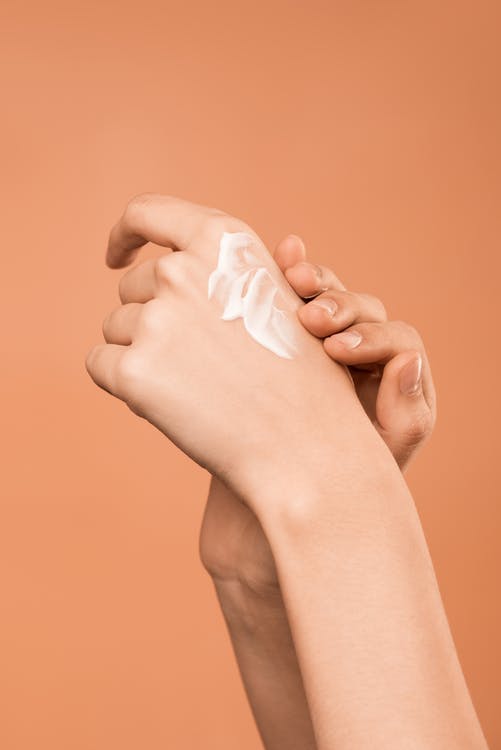
 Living with psoriasis can be difficult – the itching, the rashes, the broken skin, bleeding, cracked skin, the pain, the inflammation, the sores, and the dry, patchy skin can all make life uncomfortable, and can potentially be a socially embarrassing situation for those who suffer. It shouldn’t be something of which to be embarrassed, but anyone who lives with psoriasis probably knows how others receive the condition who do not understand it.
Living with psoriasis can be difficult – the itching, the rashes, the broken skin, bleeding, cracked skin, the pain, the inflammation, the sores, and the dry, patchy skin can all make life uncomfortable, and can potentially be a socially embarrassing situation for those who suffer. It shouldn’t be something of which to be embarrassed, but anyone who lives with psoriasis probably knows how others receive the condition who do not understand it.
There are simple ways, other than the medications the doctor prescribes, that someone who suffers from psoriasis can help minimize the painful, irritating symptoms. This article will focus on some simple lifestyle changes that might help psoriasis symptoms.
First, always be sure to check with a family doctor or dermatologist when choosing a plan to treat or improve psoriasis and its symptoms. The doctor or health care professional is likely more knowledgeable about the specifics needed to treat a particular case of psoriasis than anyone else, because psoriasis symptoms can vary vastly among those who suffer.
Secondly, psoriasis can be exacerbated by stress and emotions. Caring for mental and emotional health can go a long way to keep some minor psoriasis symptoms at bay. Try to keep a positive attitude, avoid stressful situations whenever possible, learn to de-stress, meditate, and even seek therapy if necessary.
Keep in mind that there is no ‘cure’ for psoriasis at this time, only treatment and remission, so don’t spend money on advertised products that promise to cure your ailment. Check with your doctor before using any medication or ointment, because some of the ointments and creams for treating psoriasis that are bought over the counter can interfere with other ointments or creams prescribed by your doctor.
Getting moderate amounts of time in the sun is very good for psoriasis symptoms. However, a sunburn could be devastatingly painful to a psoriasis sufferer, so be sure to use sunscreen and limit your time in the sun to avoid getting burned.
Don’t be afraid to talk about your psoriasis ailments. Your symptoms are nothing of which to be ashamed, and the more comfortable you are talking about psoriasis, the more comfortable your friends and family will be with your symptoms.
Wear natural fiber clothing and avoid polyester blends, nylon/s, rayon and tight clothing that can irritate your condition. Wear light, natural fibered, breathable and loose clothing whenever possible – cotton undergarments can also help.
If you suffer from psoriasis, bathing regularly, preferably daily, in cool to warm water helps. Hot water dries the skin and can cause irritation. Soaking in a cool or lukewarm tub is better than a shower, because your skin receives more and prolonged exposure to the moisture. When bathing, use a mild, additive free soap, such as Dove, which contains a moisturizer.
When shampooing hair, use a very mild shampoo and use only a small amount. Do not scratch or rub the scalp too much, and try to pat dry your hair, instead of rubbing it or using a hot blow dryer. If you must blow dry your hair, use the cool setting on the hairdryer.
When drying from a bath, do not rub dry, but rather pat the skin until it is almost dry, but still slightly moist. Immediately after patting the skin dry, apply a moisturizer to the skin or use non-fragranced baby oil or mineral oil to seal the moisture into your skin. Baby oils or moisturizers with fragrance likely contain alcohol and that may be counterproductive to keeping the skin moist or could cause a psoriasis reaction.
When applying the oils or creams or ointment the doctor give you, or when applying the baby oil or mineral oil after a bath, do not rub the oil into your skin. This can cause irritation. Instead, apply the topical treatment liberally and lightly pat it into the skin and then smooth it out, moving in the direction of the natural flow of your skin’s hair and let it dry or absorb naturally.
Be careful of exposing yourself to allergens that can cause skin irritation as well as causing a psoriasis flare up. Allergens include: harsh chemicals, grass, pollen, bug bites, chlorine (such as in tap water and especially swimming pool water), detergents, perfumes, etc. If skin becomes scratched, a rash develops, or an allergy occurs, avoid the urge to scratch the itches or rub them. Hydrocortisone creams might help with the symptoms.
Most importantly, read and educate yourself on the symptoms of psoriasis as well as prevention and treatment strategies. Visit your dermatologist or health care professional regularly and follow their advice. Remember, psoriasis cannot be passed on to someone else through touching, kissing, or any physical contact, so there’s no reason you cannot enjoy a full and social life.